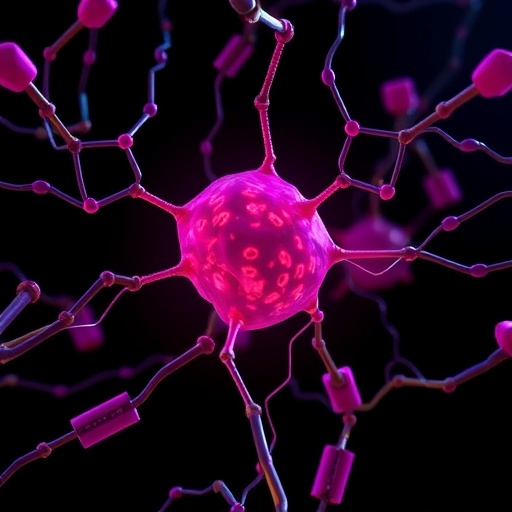A recent study has delved into the protective effects of exogenous phosphatidylserine in the context of mesenteric ischemia-reperfusion injury, a condition that poses significant health risks. Mesenteric ischemia occurs when blood flow to the intestines is obstructed, often leading to severe complications, particularly when blood flow returns and causes further damage—a phenomenon known as reperfusion injury. The innovative approach undertaken by researchers, led by Hamaneh and colleagues, aims to elucidate the role of phosphatidylserine in mitigating these detrimental effects.
Phosphatidylserine (PS), a phospholipid component found within cell membranes, has gained attention for its potential neuroprotective properties. Traditionally, PS has been studied in the context of brain health, but this new research expands its scope dramatically into gastrointestinal protection mechanisms. The study’s findings suggest that PS holds the promise of being an effective therapeutic agent against the harmful sequelae associated with mesenteric ischemia-reperfusion.
The experimental design of the study incorporated multiple testing conditions, showcasing the researchers’ meticulous approach. Using animal models that mimicked mesenteric ischemia-reperfusion injury, they administered PS to evaluate its effects on tissue recovery and biochemical markers. The results were striking, showing that PS administration not only improved overall survival rates but also significantly reduced organ damage.
At the cellular level, the Akt/mTOR pathway, which plays a fundamental role in cellular metabolism and survival, was notably upregulated in the presence of phosphatidylserine. This pathway is crucial for mediating the cellular response to stress and injury. The upregulation of Akt/mTOR signaling in response to PS suggests a mechanism through which PS facilitates tissue protection and recovery from ischemic conditions.
Increased levels of Akt/mTOR pathway activity indicate enhanced cell survival, increased proliferation, and improved metabolic function. These cellular benefits align with the observed reduction in tissue damage, presenting a robust case for further investigation into PS as an adjunctive therapy in conditions marked by ischemia and subsequent reperfusion injuries.
The findings also bring forth implications for clinical applications. As the prevalence of ischemic bowel diseases increases globally, strategies aimed at minimizing ischemic injuries are paramount. If phosphatidylserine can be effectively translated into clinical settings, it can serve not only as a protective agent but also as a potential modifier in managing conditions resulting from ischemia.
Critically, the study also addressed safety concerns associated with phosphatidylserine supplementation. The administered doses were shown to be well-tolerated with no significant adverse effects. This aspect of the research is paramount, as any therapeutic intervention must balance efficacy with safety, particularly when considering potential long-term use in clinical practice.
Moreover, by demonstrating the effectiveness of phosphatidylserine in reducing injury and enhancing recovery, this research opens avenues for future studies to investigate optimal dosing strategies and the timing of administration. A comprehensive understanding of these dynamics is essential to maximize the benefits of PS while minimizing any potential risks.
The broader implications of this research extend beyond initial findings; they encourage a reevaluation of existing therapeutic approaches to treating ischemic injuries. Current treatments often focus on invasive interventions or pharmacologic agents with varying degrees of efficacy. In contrast, the exploration of phosphatidylserine as a non-invasive adjunctive therapy may represent a paradigm shift in how such conditions are approached.
In addition to its mechanistic insights, this study is poised to inspire further investigations exploring the multifaceted roles of phosphatidylserine. For instance, future research could explore the relationship between PS and other signaling pathways or its effects on various organs subjected to ischemia.
The motivation driving this research extends from a fundamental desire to improve patient outcomes through scientifically sound interventions. Researchers emphasize the need for continued exploration not just in animal models but in human clinical trials to evaluate phosphatidylserine’s effectiveness in diverse populations.
As the healthcare community grapples with the challenges posed by ischemic complications, the promise of phosphatidylserine shines as a beacon of hope. The modulation of the Akt/mTOR pathway through phosphatidylserine proactively offers a potential strategy to mitigate the dire consequences of mesenteric ischemia-reperfusion injuries. This avenue for research may well illuminate new pathways in treatment protocols ultimately enhancing recovery and survival for patients affected by this critical condition.
In summary, the strides made in this study represent not just a scientific breakthrough but also a potential game-changer in the management of mesenteric ischemia-reperfusion. It highlights the intricate balance of cellular signaling and the profound impacts that nutritional biochemistry can have on recovery processes. As further studies unfold, the implications for clinical practice and patient care promise to be significant.
The future beckons with opportunities for extensive investigations into the capabilities of phosphatidylserine, presenting a unique intersection between nutrition, biochemistry, and critical care medicine. The hope is palpable within the research community that this work will catalyze a new understanding of how to better combat ischemic crises, ultimately translating animal research into compassionate, effective human treatments.
In conclusion, the contributions made by Hamaneh and his fellow researchers not only provide a robust foundation for future studies but also instill optimism that phosphatidylserine may pave the way forward for effective interventions against ischemia-reperfusion injuries, potentially transforming therapeutic practices in years to come.
Subject of Research: Protective effects of exogenous phosphatidylserine in mesenteric ischemia-reperfusion injury.
Article Title: Exogenous phosphatidylserine protects against mesenteric ischemia-reperfusion with associated Akt/mTOR pathway upregulation.
Article References: Hamaneh, A.M., Ghasemi, M., Mehrabi, M.M. et al. Exogenous phosphatidylserine protects against mesenteric ischemia-reperfusion with associated Akt/mTOR pathway upregulation. Sci Rep 15, 37889 (2025). https://doi.org/10.1038/s41598-025-21750-8
Image Credits: AI Generated
DOI:
Keywords: Phosphatidylserine, mesenteric ischemia, reperfusion injury, AKT/mTOR pathway, intestinal health, protective agents, cellular signaling, clinical applications.
Tags: Akt/mTOR signaling pathwayanimal models in biomedical researchcell membrane phospholipidsexogenous phosphatidylserine benefitsgastrointestinal health and protectionhealth risks of ischemiainnovative treatment approachesmesenteric ischemia-reperfusion injuryorgan damage reduction strategiesphosphatidylserine neuroprotective effectstherapeutic agents for ischemiatissue recovery mechanisms





